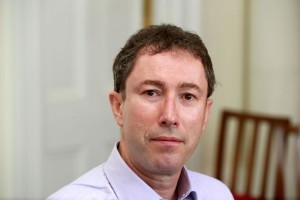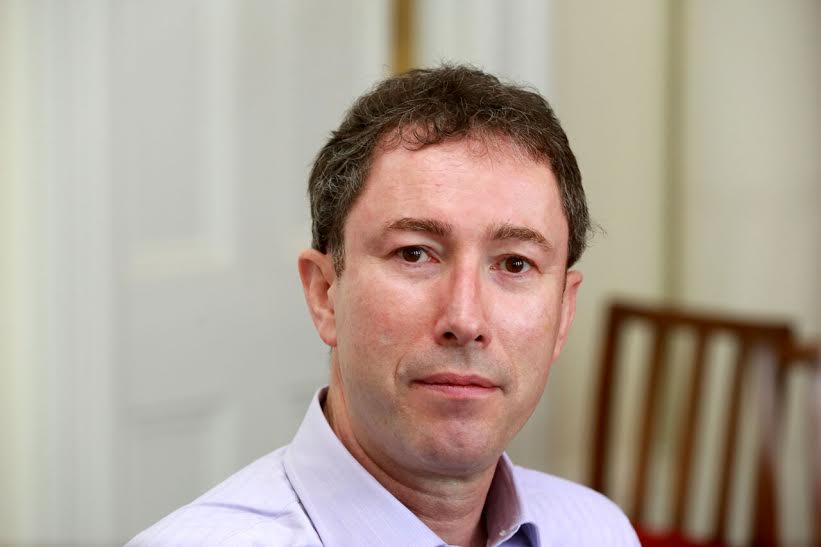The new chief executive of Brighton and Hove City Council has spoken about the difficult choices that lie ahead.
Geoff Raw, 53, was promoted to the top job last week from the job of executive director of environment, development and housing.
He saw off external candidates and emerged from a two-day selection and interview process to win the £150,000-a-year job.

Mr Raw joined the council five years ago as strategic director of place – one of four strategic directors appointed by the then chief executive John Barradell as part of a shake up.
He is the only survivor of the new guard, earning him the nickname Teflon Geoff – the last man standing.
He will need a Teflon coating in the coming months as the council has to find more savings, inevitably putting jobs and services at risk.
Ambitious
But Mr Raw believes that the council and the city should be ambitious despite the constraints on the public finances.
He said that, as well as the financial challenge, other key challenges revolved around the place and the people.
“We have to manage the place, the physical environment. We need to invest and renew the fabric of the city.
“We did very well with the City Deal. That’s brought in about £100 million from the public sector and that’s going to leverage in about £1 billion from the private sector.
It included the creation of the Greater Brighton Economic Board, along with neighbouring councils, big educational institutions and others, such as Shoreham Port.
Some of the funding would be spent on projects involving training, education and skills. Some would be used for infrastructure projects – buildings, transport and digital facilities.
He is keen that the council shows that it can deliver to boost its chances of winning further funding as more infrastructure spending is required on, for example, the Madeira terraces.
He believes that the experience he gained as a relatively young town planner working on the regeneration of Wembley Stadium will help.
Commercial
One of his goals was to ensure that the town of Wembley benefited from the new stadium.
Mr Raw said: “You have to be very commercial in your approach. The private sector wants to make a profit.
“And you have to reflect the ambitions of the local community. At the same time you’ve got to be very careful to nurture the heritage of a place.
“It’s the same in Brighton. People cherish a place and have a relationship with it and you have to be mindful of that even though you may have to bring about change.”
Some of the changes on the horizon are physical. They involve the buildings and infrastructure, such as the seafront, including the i360, Madeira terraces, Brighton Marina and the King Alfred.
They also include the Waterfront project to extend Churchill Square to the seafront and move the Brighton Centre conference and concert facilities to Black Rock.
But some of the changes involve the council’s finances. The government has been reducing the level of grant funding for councils while making it hard for them to recoup the shortfall through higher council tax bills.
It also means that some of the changes are likely to involve providing fewer services or a reduced level of service and asking charities and other voluntary organisations – and individual volunteers – to help with the burden.
Modernising
Mr Raw said: “We’re spending £2 million a day, delivering services. There’s always the day job. We’re a democratic institution and, as the chief executive, you’re reflecting the political priorities but taking into account views across the parties.
“The other big challenges are we need to keep updating and modernising the way we do things.
“More and more people want to do things in a digital way. People expect that and they expect good customer service.”
Technology could enable the council to work more efficiently and more cost-effectively, freeing up valuable funds for frontline services.
He acknowledged the need to ensure that people weren’t left behind if they were less able to afford or to use digital technology in their dealings with the council.
Vulnerable
He said: “There’s the people challenge. There’s a growing number of older people. There are people who are vulnerable and need support, those who have learning difficulties. And there are people with drink and drugs problems.”
He highlighted vulnerable children and said: “That’s become a very pressing problem since the uncovering of the child sexual abuse scandal in Rotherham.
“Where family life isn’t strong, we have to protect children. We have a corporate parenting role which I know councillors take very seriously.”
When Mr Raw thanked the council for appointing him – at a full council meeting at the Brighton Centre on Thursday (24 October) – he said that the job was a dream come true for a lad who went to a pit village school in the north east.
From his accent, it can be hard to discern his Geordie roots, although he was “born within the sound of Parson’s hooter”.
After grammar school in Newcastle, he studied economics and social studies at the University of East Anglia in Norwich and town planning and urban planning at Oxford Poly – now Oxford Brookes University.
He has worked in local and national government – for councils, the Treasury, the Housing Corporation and the Mayor of London.
Amazing
Mr Raw, a married father of one, said that he loves living and working in Brighton and Hove. He said: “It is an absolutely amazing city. How could I resist coming to a place like this!
“I want to give the best possible service we can afford to city residents and businesses.
“What we’re doing at the moment is working on a four-year budget strategy. The politicians are going to have to make some really difficult choices.”
He said that while the elected politicians – the councillors – might disagree in public, in one thing they were united: “They all love the city.”
It’s a love that he shares – and a key reason for taking up his new job, with all its many challenges.









